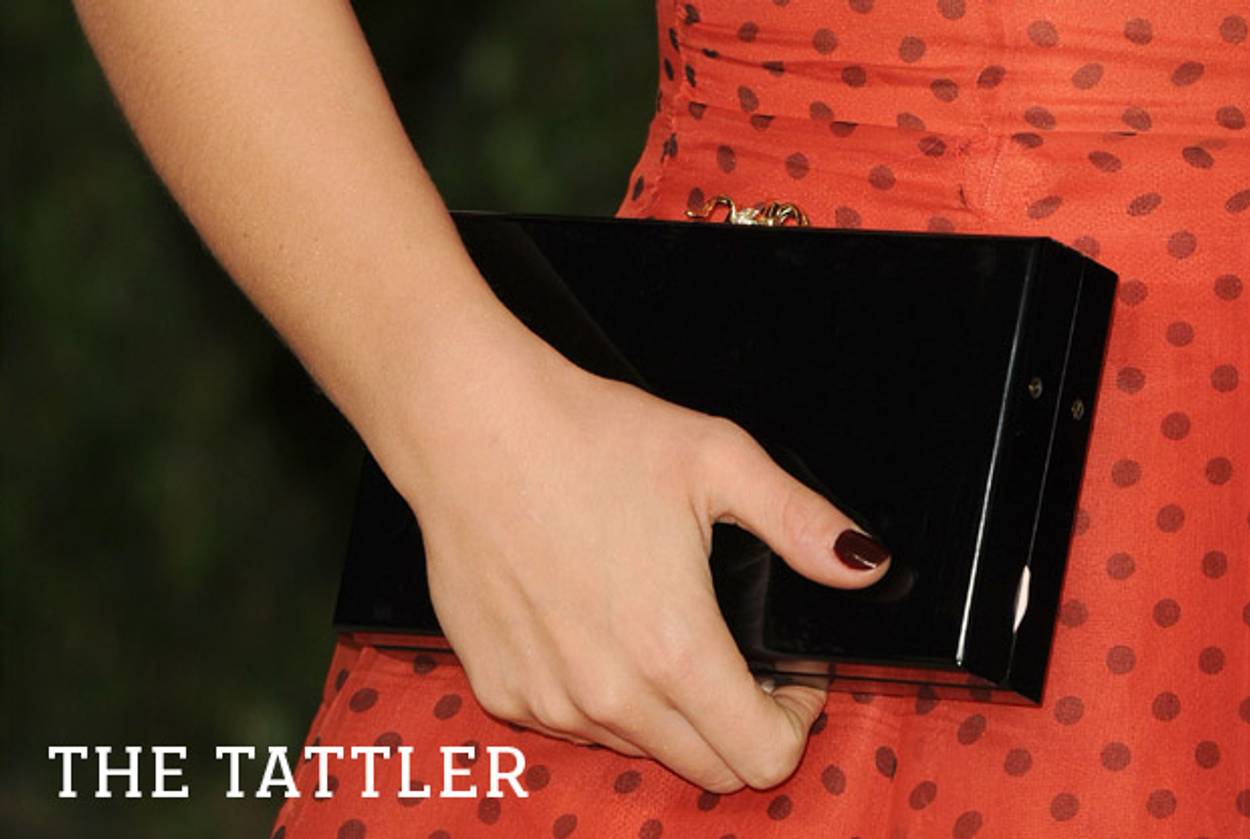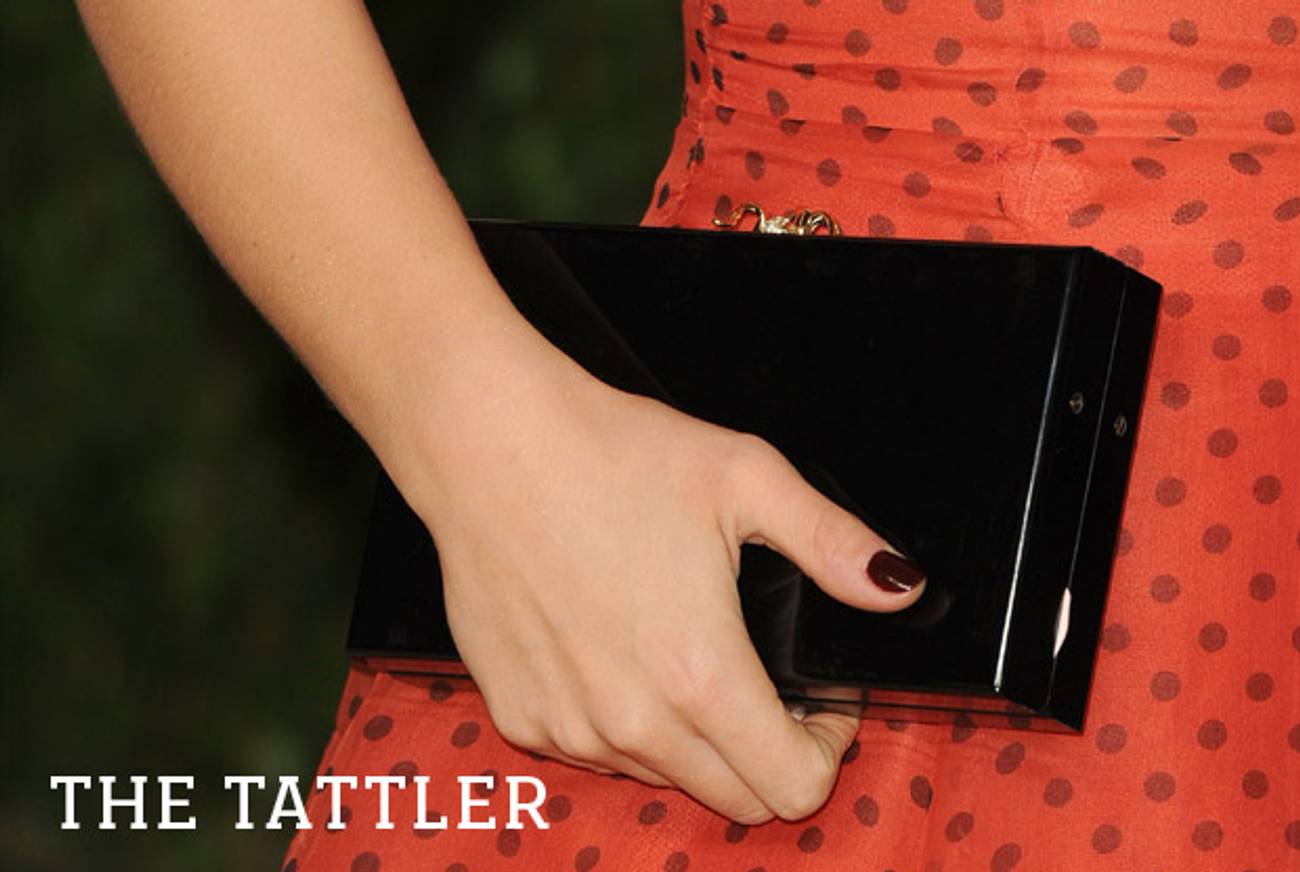Antique Politik
In choosing vintage Dior for her Oscars dress, Natalie Portman became an icon of fashion diplomacy—by maintaining both her ethics and her endorsement deal




There’s a famous scene early in Gone With the Wind, where Scarlett O’Hara, fresh from the disappointingly mundane death of her first husband, the dopey and unlamented Charles Hamilton, accepts Captain Rhett Butler’s offer to dance at a charity bazaar. Respectable Atlanta society—which recognized the sale and ownership of other human beings, but not the right of a grown woman to leave the house without a chaperone—is scandalized by the prospect of a merry widow in their midst, until Scarlett’s sister-in-law, the saintly Melanie Wilkes, comes to her defense, insisting Scarlett is merely “sacrificing” for the “Glorious Cause,” and the old guard is appeased. Dolly Meriwether, the most fearsomely judgmental matron in Atlanta, sums it up succinctly: “If Melanie Wilkes says it’s all right, it is all right.”
This was precisely the line that popped into my head when Natalie Portman appeared on the Oscar red carpet Sunday night.
Look. We’re Jews, you and me, and thus could each probably recall even the mildest display of anti-Semitism by a public figure as though it happened yesterday, so I don’t think I need to remind you of former Dior designer John Galliano’s spectacular, Hitler-assisted fall from grace this time last year. What may be slightly fuzzier in your memory were the responses to the tempestuous Gibraltarian’s outburst, most of which took the standard relativistic line about how some alchemical combination of alcoholism, creativity, and being very, very tired can unaccountably and temporarily transform even the most devoted pluralist into a raving anti-Semite. Of all the responses, it was Natalie Portman, newly appointed “Dior ambassador,” who was, to her credit, the most unyielding and unequivocal, proclaiming herself “disgusted” and saying, “As an individual who is proud to be Jewish, I will not be associated with Mr. Galliano in any way.”
And yet, precisely a year later, there she was, Hollywood’s own Queen Esther, popping up in lavish Sofia Coppola-directed Miss Dior perfume ads and presenting the beaming (and very French) Jean Dujardin with the Best Actor statuette with her tiny frame encased in a swirl of red polka-dotted Dior chiffon. But how? How on earth did Natalie manage to stay true to her word, bolstering her impeccable credentials as a credit to the tribe while keeping her endorsement deal and looking like several million bucks?
For starters, Natalie’s Oscar dress was not just Dior, it was vintage Dior, from 1954. By definition (and likely, if you’ll pardon the pun, design) Galliano had nothing to do with it—nor did any of his minions. Natalie’s gown was undoubtedly fussed over in the house’s legendary dove-gray Paris salon by none other than Mr. Dior himself, a man who made it through the Occupation quietly—and far more apolitically than his enthusiastically collaborative colleagues Chanel and Vuitton—dressing the fashionable wives of rich S.S. officers. (M’enfin, c’est la vie.) There has to be some statute of limitations for that sort of thing; after all, Barbra Streisand doesn’t look likely to give up her monopoly on Donna Karan anytime soon, and a minimalist Calvin Klein sheath, while lovely, is not flattering on a girl who’s been breast-feeding. (Don’t even get me started on Ralph Lauren.)
I can’t speculate on what kind of promises were made to keep Portman in the Dior fold—and it’s possible that Galliano’s prompt firing was enough—but there’s no doubt that her choice of gown, which landed her comfortably on most of the major best-dressed lists, was a brilliant P.R. move for a company still struggling to regain its cachet among, shall we say, a certain kind of consumer. (As Simon Doonan exclaimed in his hilariously pragmatic reaction to the whole kerfuffle, “WASPs don’t shop!”) So too was Dior’s selection of Mila Kunis—the sultry id to Portman’s demure superego in the psyche of every fashion-conscious Jewish girl—as Natalie’s successor as the face of the brand; it makes one wonder how a similar strategy might benefit other brands about which Jews have traditionally been a little bit iffy. Will Sacha Baron Cohen succeed Jon Hamm as the voice of Mercedes-Benz? Might we see Barbra Streisand behind the wheel an all-terrain BMW, or Larry David surprising himself with the ease of the milk aerator on his new Siemens cappuccino machine?
The mind reels, but one thing is for sure, my materialist mamelehs: You can dig your Lady Dior out of the dust bags in the back of the closet. If Natalie says it’s kosher, it’s kosher.
Rachel Shukert, a Tablet Magazine columnist on pop culture, is the author of the memoirs Have You No Shame? and Everything Is Going To Be Great. Starstruck, the first in a series of three novels, is new from Random House. Her Twitter feed is @rachelshukert.
Rachel Shukert is the author of the memoirs Have You No Shame? and Everything Is Going To Be Great,and the novel Starstruck. She is the creator of the Netflix show The Baby-Sitters Club, and a writer on such series as GLOW and Supergirl. Her Twitter feed is @rachelshukert.